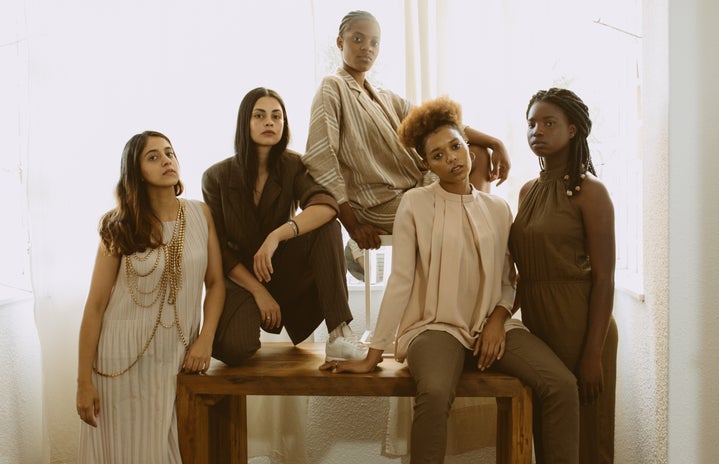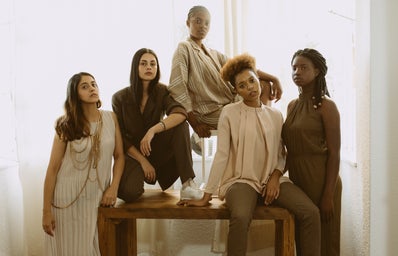In the media, feminism is portrayed as women empowerment. And while that sends positive attitudes of what it means to be a woman, misconceptions are formed: first, many people think that feminism is about women being better than men. Before taking a Gender and Women’s Studies class, that’s what I thought feminism was about. Further, the media can talk about feminism from a narrow perspective. For instance, focuses can be on a white, middle/upperclass, hetereosexual, cis (meaning people whose gender identity matches their assigned biological sex) woman and what she endures, ignoring problems about race, class, sexuality, overall gender and body image. It is impossible for me to simply define feminism in this article in the most articulate way as a) I am a college sophomore with so much to learn and b) gender and sexuality issues have so many complexities and layers. How do politics play a role? Economics? Culture? Social class? With that, I am going to talk about three main kinds of feminism out of many and round it out by discussing what I personally believe feminism is.
- Liberal Feminism
-
Liberal feminists believe that women of all races, classes, sexualites, etc, should have the same opportunity as men economically, socially and politically. The idea is all about sameness. In order to do so, laws, public life and the workplace norms must be challenged. Specifically, equal pay, maternity leave and abortion, to name a select view must be adressed. It should be noted that liberal feminism does not directly correlate to being a Democrat. While there are some similarities, overarching ideas is the belief of individual freedom/choice and equality under the law.
- Radical Feminism
-
Radical Feminists believe that women are oppressed first and foremost as women, and that their oppression comes from patriarchy. No matter the race, class or sexuality, patriarchy is the cause of problems for people. Because of the male dominance, contradictions occur. For instance, women are encouraged by the patriarchy to look alike, but they also must express themselves individually, which adds to the oppression of women.
- Materialist Feminism
-
Materialist thought looks at gender oppression through material conditions, like economics, class and jobs. They believe that certain careers and statuses are dominated by women because of capitalism and social standings. If you are a Marxists feminist under materialist feminism, you believe that capitalism is the reason for women’s oppression, and for that oppression to cease, so must capitalism. If you’re a socialist feminist, you believe patriarchy and capitalism are both at play. Materialist feminism looks at the broader issues of oppression through the economic angle, and believes that women do most of the low paying labor and men succeed at higher paying jobs.
- My Own Definition
-
Based on what I’ve learned through the first one and a half years of college, I describe feminism as the equal treatment of all genders and sexualities socially, economically and politically. For clarification, gender uses the terms “men” and “women” rather than “male” or “female.” Gender includes those who identify as non-binary, genderqueer and transgender. While many believe sex to be binary, only “male” or “female,” sex also includes those who are intersex (people born with both “male” and “female” genitalia). Sex (biology) does not equal gender (self identified labeling somewhere on the spectrum of “men” to “women”). Sex and gender should not play any role on how people are treated and what opportunities they should have.
What I provided is multiple ways feminism is defined, including my own personal definition. There are many different definitionsof what it means to be a feminist, but I believe that overall, there is a common understanding that there is an oppression that women and those who do identify as a white, straight or cis man. It is important to educate yourself on gender and sexualities, and the intersecting identities, and your own understanding and relations.



